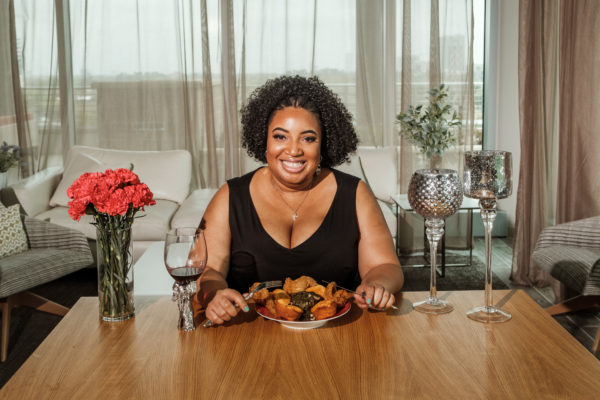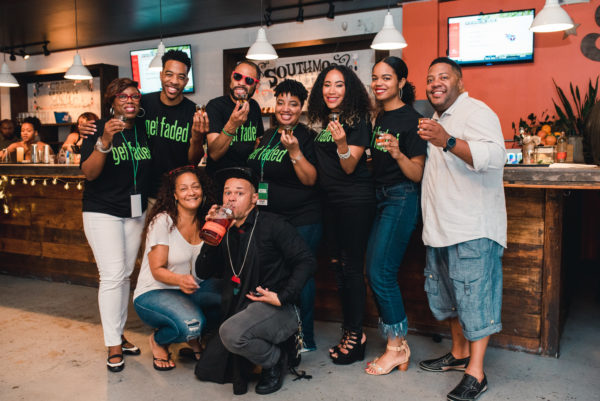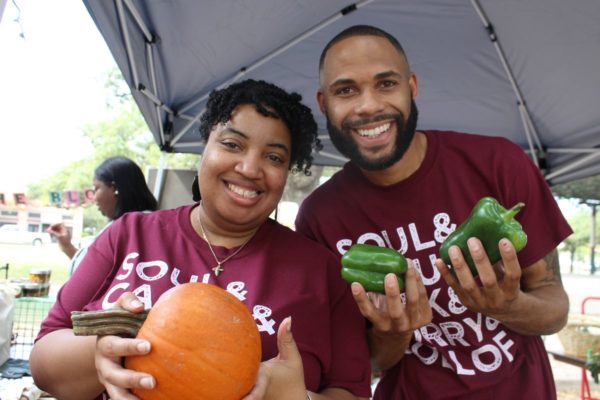Falayn Ferrell may not be a restaurant owner, but she is using her marketing background to help hundreds of them.
Ferrell along with co-founders Warren Luckett and Derek Robinson grew a Houston-based culinary festival into an eight-city tour, with each stop merging their festivities under the event title of Black Restaurant Week.
The week is slated to start Sept. 1 and continue through Sept. 15 in Atlanta.

Black Restaurant Week has attracted more than 25,000 email subscribers and more than 60,000 followers on Facebook, Instagram and Twitter combined. It’s received mentions in The New York Times, Food & Wine, Travel + Leisure and the “Tom Joyner Morning Show.”
When the week starts in Atlanta, it will feature about 15 black-owned restaurants including Boogalou, Dat Fire Jerk Chicken, Negril Village and Ms. Icey’s Kitchen and Bar.
Some of the participating restaurants are offering prix fixe menus starting at $10, and the week promises a culinary showcase promoted as a mashup of “top-talent chefs, bakers and mixologists” Sept. 12 at 595 North Event Center.

Also on the schedule of events are a food truck festival Sept. 14 and a pop-up dinner hosted by “Hell’s Kitchen” alum Scotley Inis Sept. 11.
“Our mission is to provide a platform that calls for inclusion in the industry and exposes and elevates black-owned businesses,” founder Warren Luckett said in a news conference for the week.
Black people make up 12 percent of restaurant employees but only 8 percent of restaurant owners and managers, according to the most recently available figures from the National Restaurant Association.
Ferrell said her week aims to improve those numbers and help existing Black-owned businesses thrive.
“For us in the long run, it’s just being able to help as many businesses as we can,” Ferrell said.

Participating restaurants pay $250 to participate, and the week already boasts more than 200 businesses that have signed on this year alone, Ferrell said.
Most of that money goes toward marketing expenses for the participating companies.
“We really don’t profit from it,” Ferrell said. “Our goal is to just highlight restaurants.”
Organizers also plan to donate 20 percent of the fee businesses pay to participate to F.A.R.M.S., a South Carolina-based nonprofit that prioritizes family, agriculture and resource management services.
The company’s aim is to relieve hunger in farming communities and protect family farmers from abuse with legal services.
“We’re really able to give a voice to all the business owners,” Ferrell said.
Ferrell said since starting Restaurant Week in 2016, she and the other co-founders have been able to turn a local festival with about 10 participating restaurants into a multi-city tour with 11 local and national sponsors, including Verizon, Jack Daniel’s and the National Urban League.
The tour stops in Houston, Philadelphia, New Orleans, Indianapolis, Los Angeles, the Bay Area and Dallas, as well as Atlanta.
The benefit for restaurant patrons is the discounts.
“You could literally just go, dine in, ask for the special menu and go from there,” Ferrell said.
The benefit for restaurants is the exposure.
Ferrell said in her work with Black Restaurant Week, she’s seen food trucks able to add more trucks to their fleets and caterers compete for major contracts.
Organizers even mentioned an economic impact of approximately $1.5 million in marketing materials for the week.
Ferrell said that’s exactly what the week is about — helping Black-owned companies overlooked at larger festivals succeed.
“I will say it’s definitely needed to really just pump money into our Black-owned communities and businesses,” she said.


